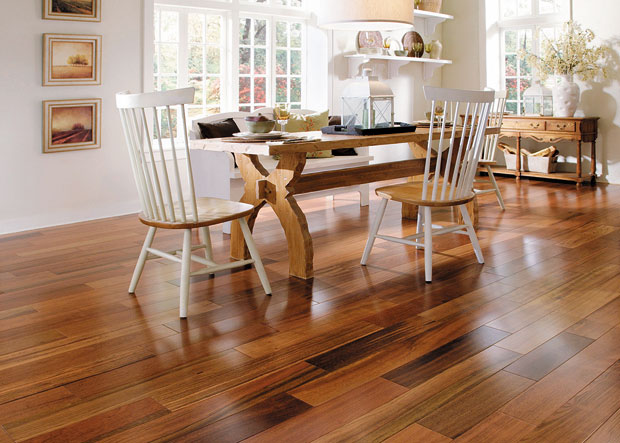Smart Improvements That Work for All Ages
Most Americans over 50 want to stay in their home as they age, but few are making the renovations they need to ensure easy and comfortable living for years to come.
In fact, 80 percent of people older than 50 say they would prefer to remain in their home indefinitely, according to an AARP survey. The Hartford and MIT Age Labs found that while 96 percent of baby boomers are aware of the changes they could make to their current home to make it more comfortable as they grow older, only 26 percent have made such modifications.
Consider some of the following functional, yet beautiful, touches that help make a home safer and more comfortable for residents of all ages.
Hardwood floors
Replacing carpet with hardwood floors can help accommodate difficulties ranging from respiratory problems to decreased mobility. Unlike carpet, hardwood flooring doesn’t trap dust, pollen or other particles that cause problems for those with allergies and respiratory issues. Wheelchairs and other mobility equipment can glide more easily over a hard surface, and hardwood floors require far less maintenance.

New furniture
Changing out furniture can make a huge difference in the comfort and style of a home. Enhance maneuverability by allowing ample room between furnishings, and by picking accessible pieces such as counter-height dining tables and chairs. Likewise, it’s easier to sit in and stand from firmer sofas and chairs than deeper, softer options.
Kitchen improvements
Kitchen shelves that pull out make utensils, pots and pans, and ingredients much more accessible, and do not require a kitchen remodel. A wide range of products and kits enable homeowners to easily install sliding shelves themselves, or they can hire a contractor to do the job. Also, consider swapping out knobs for handles on cabinets and drawers to make them more accessible and easier to use.
More lighting
Make sure all areas of your property — inside and outside — are well lit. Pendant lamps, inset ceiling lights and track lighting help illuminate a room from above, preventing glare that can cause temporary blindness. Opt for switches to turn lights on and off, and locate them at the entrances of each room. If a home’s wiring isn’t set up this way, the homeowner may need to contact an electrician.
This article is courtesy of Brandpoint.